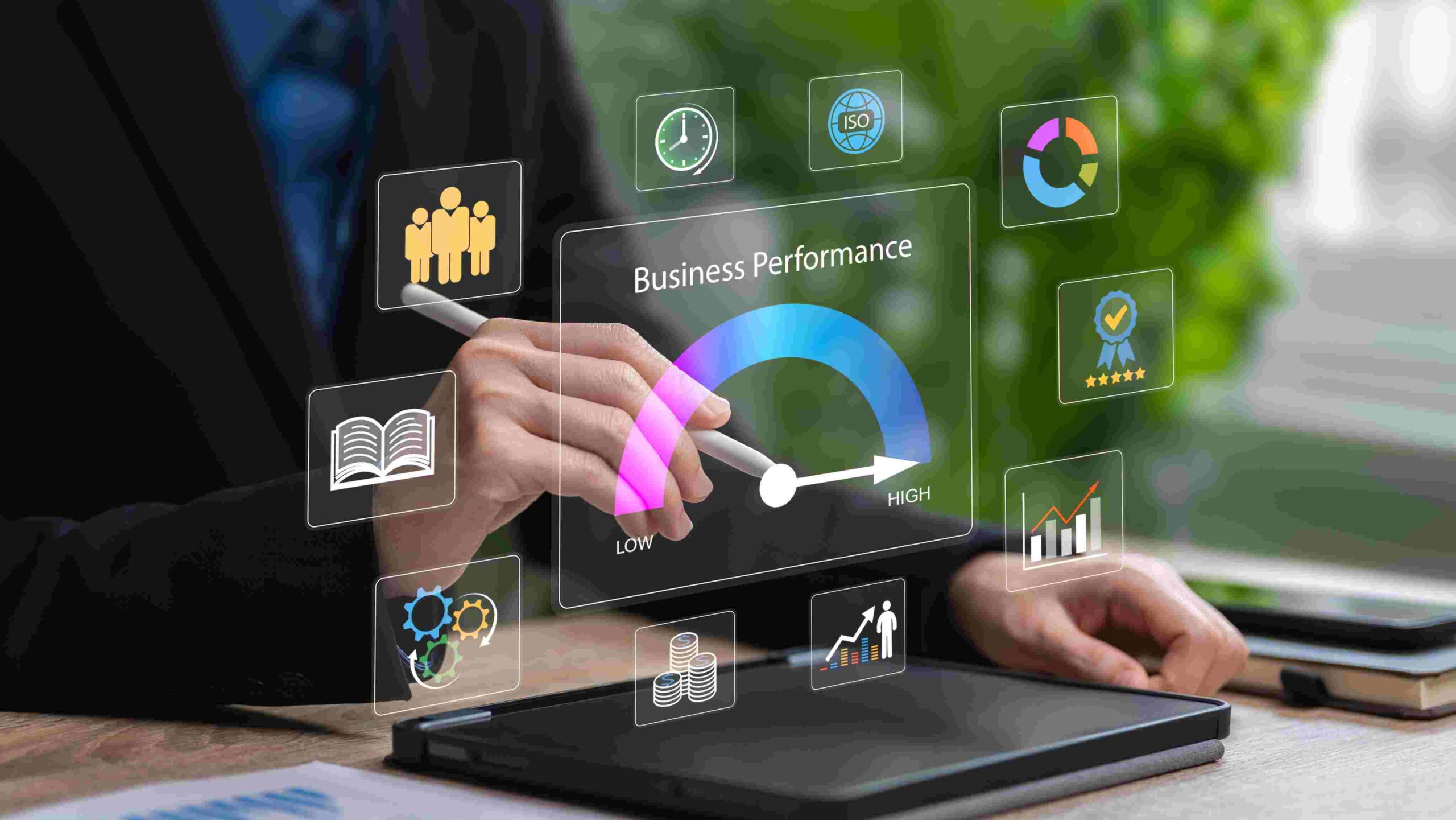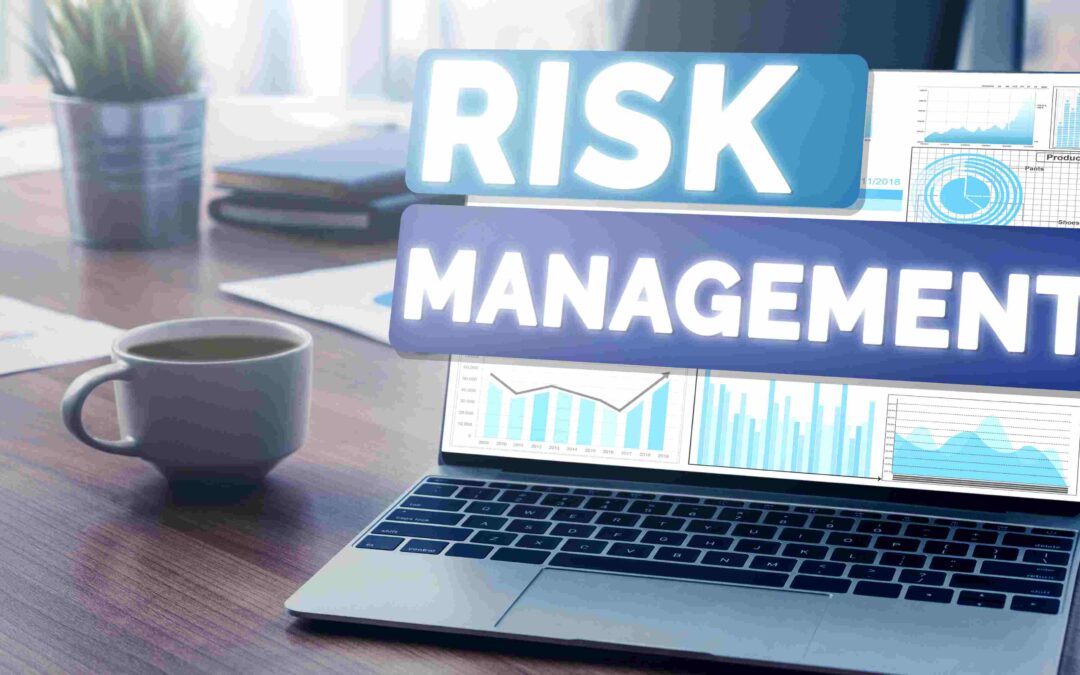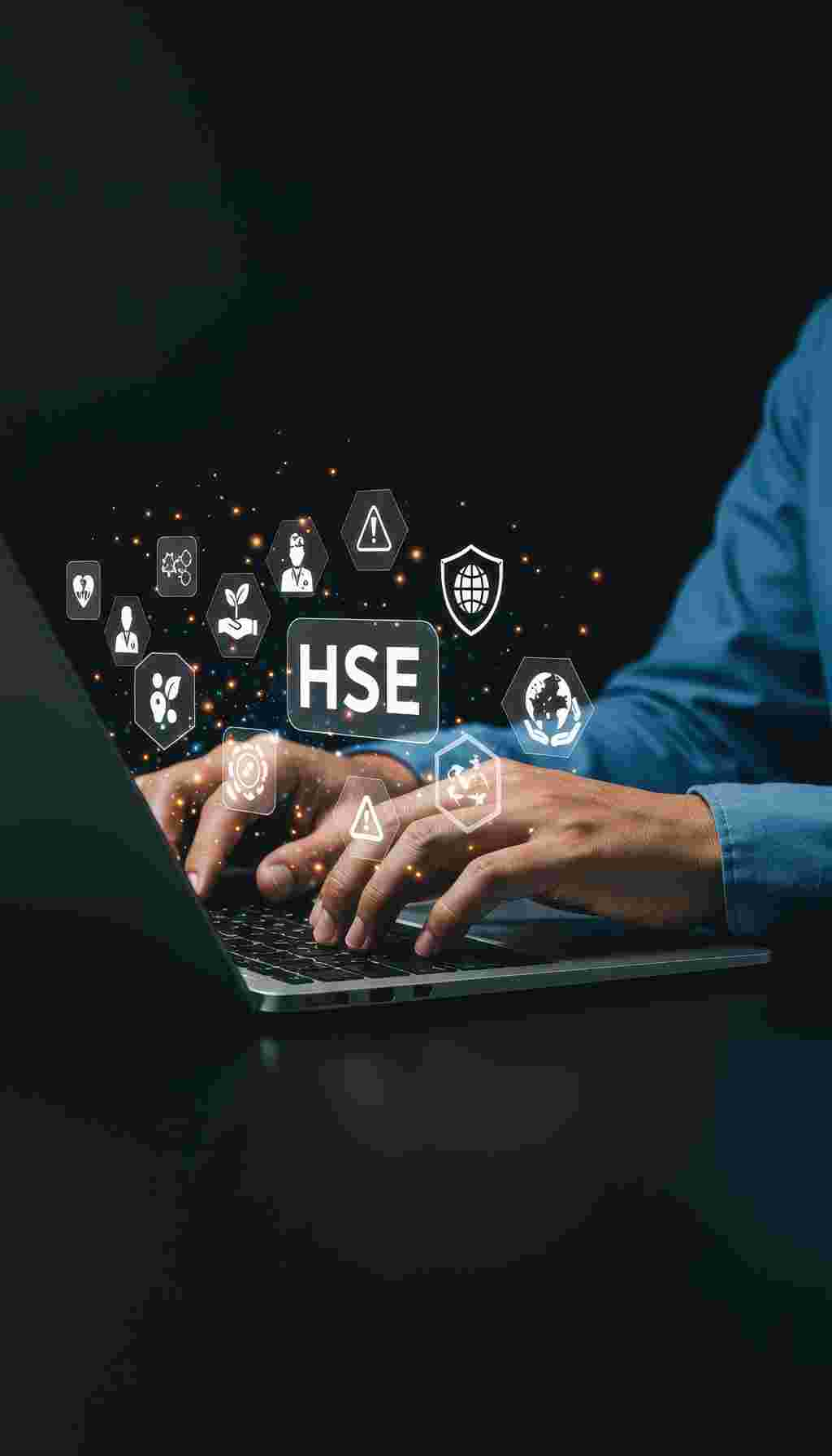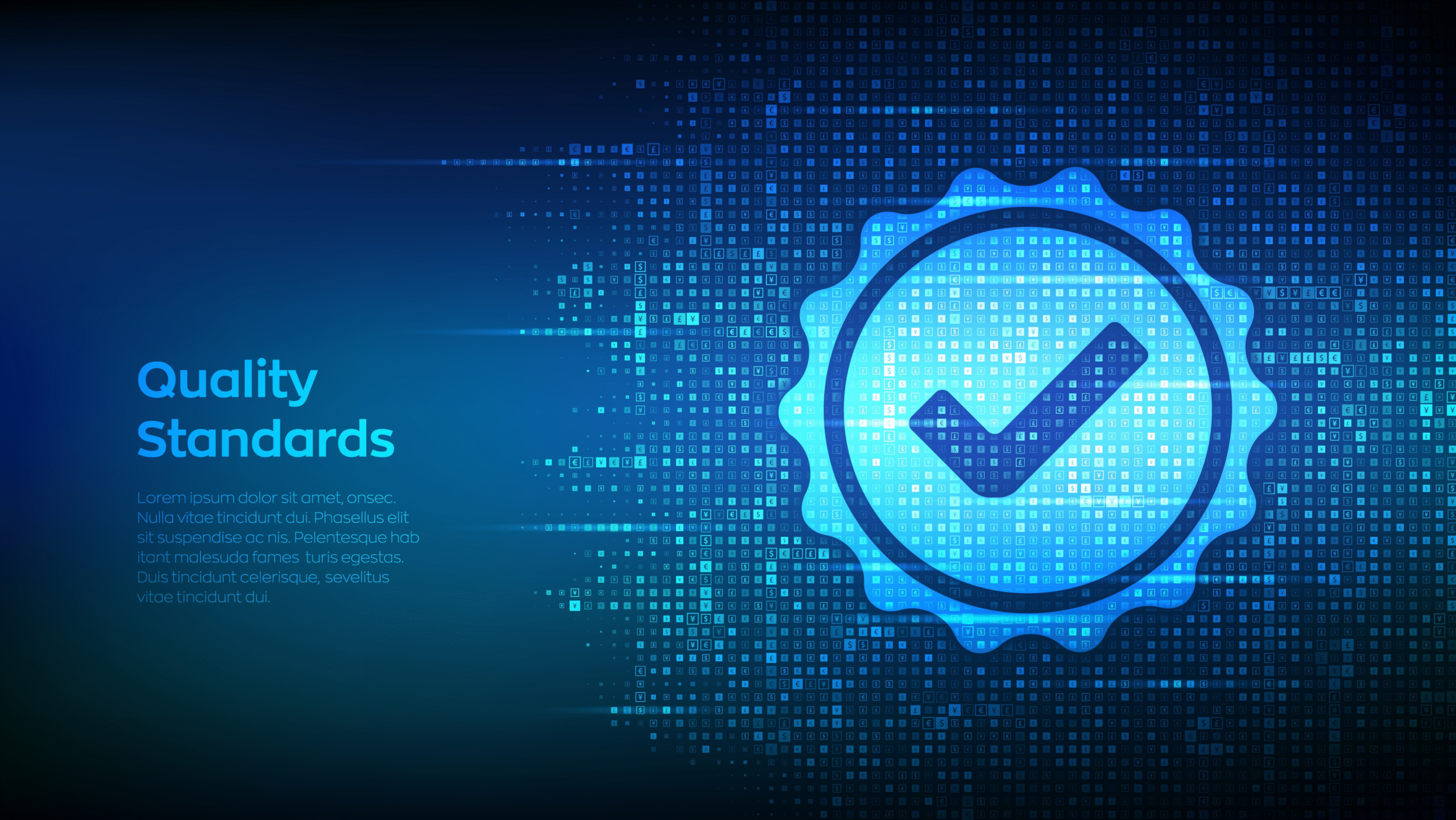Beyond Traditional Training How Digital Tools Are Reshaping Irish Construction Safety
What You Really Need to Know
Introduction
On November 13th, 2025, quality professionals around the world will celebrate World Quality Day with a theme that couldn’t be more timely: “Quality: think differently.” Running throughout World Quality Week (November 10-14, 2025), this year’s theme isn’t just a catchy slogan it’s a challenge to every business leader who’s ever viewed quality management as a necessary evil rather than a strategic advantage.
For too many Irish businesses, quality remains trapped in a 1990s mindset: audit checklists, compliance boxes to tick, and paperwork that sits in filing cabinets until the next external assessment. But what if we told you that thinking is not just outdated it’s actively harmful to your business performance? The companies thriving in 2025 have discovered something transformative: quality isn’t about compliance; it’s about competitive advantage.
Beyond Audits What Quality Really Means in 2025
The traditional view of quality management periodic audits, corrective actions, and document control represents barely 20% of what modern quality systems can achieve. Today’s quality management is about real-time optimisation, predictive problem-solving, and creating systematic competitive advantages that your competitors struggle to replicate.
Consider this: whilst your competitors are still treating ISO 9001 as a certification to achieve and maintain, forward-thinking businesses are using quality management systems as engines for continuous improvement, waste reduction, and customer delight. The difference in business performance is dramatic.
Performance Reality: Companies with mature quality management systems report 15-25% reductions in operational costs, 30-50% improvements in customer satisfaction scores, and 20-40% decreases in product defects. These aren’t compliance metrics they’re bottom-line business results.
From Documentation to Data-Driven Decisions
The shift from traditional quality management to modern approaches is fundamentally about moving from reactive documentation to proactive data utilisation. Instead of recording what went wrong after the fact, today’s quality systems predict problems before they occur and optimise processes in real-time.
Irish manufacturers are discovering that quality data, when properly captured and analysed, becomes one of their most valuable business assets. Production efficiency, customer satisfaction, supplier performance, and employee engagement all improve when quality management evolves from compliance-focused to performance-driven.
The “Think Differently” Challenge Rethinking Traditional Approaches
The Chartered Quality Institute’s theme for 2025 invites us to challenge assumptions that have constrained quality management for decades. What if quality isn’t something you control, but something you enable? What if the best quality systems are almost invisible to daily operations because they’re so well integrated?
Challenging the Audit Mentality
Traditional quality thinking focuses on catching problems through periodic reviews. Modern quality thinking prevents problems through systematic design. The difference isn’t subtle it’s transformational. Companies that make this shift report not just fewer quality issues, but entirely new levels of operational excellence.
From Compliance to Competitive Advantage
The businesses succeeding in 2025 don’t just meet quality standards they use quality systems to exceed customer expectations, reduce costs, and create differentiation their competitors can’t match. They’ve discovered that quality, properly implemented, becomes a strategic business capability rather than a regulatory requirement.
Paradigm Shift: Leading Irish companies are moving from “quality assurance” (checking that things are done right) to “quality enablement” (making it easy and natural to do things right the first time). This shift transforms both employee experience and customer outcomes.
Quality and Safety Integration The HSEQ Advantage
One of the most significant developments in modern business management is the recognition that health, safety, environment, and quality (HSEQ) aren’t separate disciplines they’re interconnected aspects of operational excellence. The companies achieving breakthrough performance are those that integrate these systems rather than managing them separately.
Why Integration Matters
Consider a manufacturing defect that creates a safety hazard, generates environmental waste, and damages quality reputation. Traditional thinking would address these as three separate problems requiring three separate solutions. Integrated thinking recognises them as symptoms of a single systematic issue requiring one comprehensive solution.
Irish businesses implementing integrated HSEQ systems report dramatic improvements in efficiency, compliance, and employee engagement. When safety procedures naturally incorporate quality checks, when environmental considerations drive process improvements, and when quality metrics include safety performance, the synergies create exponential rather than additive benefits.
Practical Integration Examples
Leading Irish manufacturers are implementing quality checks that simultaneously verify safety compliance, environmental standards, and product specifications. Their training programmes address HSEQ as a unified approach rather than separate requirements. Their management reviews consider integrated performance metrics that reveal connections invisible to siloed thinking.
The Business Case Quality as Profit Driver
The financial impact of quality management extends far beyond the cost of certification and maintenance. Comprehensive studies consistently demonstrate that mature quality systems generate substantial returns on investment through multiple channels that traditional accounting often overlooks.
Revenue Enhancement
Quality systems also drive revenue growth through improved customer satisfaction, enhanced reputation, and access to quality-sensitive markets. Irish exporters particularly benefit from quality certifications that open doors to international opportunities and premium pricing positions.
ROI Reality: Companies implementing comprehensive quality management systems typically see 300-500% return on investment within 18-24 months. The payback comes through reduced waste, improved efficiency, enhanced customer satisfaction, and access to new market opportunities.
Risk Management
Perhaps most importantly, quality systems provide systematic risk management that protects businesses from costly failures, regulatory issues, and reputation damage. The cost of poor quality including recalls, liability, lost customers, and regulatory penalties often exceeds the entire investment in quality management systems.
Digital Transformation The Technology Quality Connection
The coming revision of ISO 9001 in 2026 will emphasise digital transformation and data-driven decision making, reflecting how technology is revolutionising quality management. Irish businesses that embrace these changes now will be well-positioned for the future standard whilst gaining immediate competitive advantages.
Stigma-Reduction Strategies:
- Frame health check-ups as ‘performance MOTs’ similar to equipment maintenance
- Provide health screenings on-site during work hours to remove barriers
- Use peer champions respected workers who share their health stories
- Focus on family benefits: ‘Stay healthy for your children’s sake’
- Emphasise team responsibility: ‘Your health affects your mates’ safety’
- Celebrate health achievements alongside safety milestones
- Provide anonymous reporting options for health concerns
- Train supervisors to recognise and respond to health-related performance changes
Artificial Intelligence in Quality Management
AI applications in quality management range from predictive analytics that prevent defects to automated inspection systems that improve accuracy whilst reducing costs. Irish manufacturers are using machine learning to identify quality patterns invisible to human observation, enabling preventive actions that eliminate problems before they occur.
Internet of Things (IoT) Integration
IoT sensors provide real-time quality data that enables immediate response to variations and trends. Rather than discovering quality issues through periodic sampling, businesses can monitor quality continuously and adjust processes dynamically to maintain optimal performance.
Data Analytics and Continuous Improvement
Modern quality management systems generate vast amounts of data that, when properly analysed, reveal improvement opportunities and performance insights. Irish businesses using advanced analytics report breakthrough improvements in efficiency, consistency, and customer satisfaction that wouldn’t be achievable through traditional approaches.
Technology Integration: The most successful digital quality transformations focus on augmenting human capability rather than replacing human judgment. Technology provides better information and automates routine tasks, enabling people to focus on creative problem-solving and strategic improvement.
Health Surveillance and Early Intervention
Proactive health surveillance programmes can identify issues before they become safety risks. However, these programmes must be designed and implemented in ways that build rather than erode trust, particularly in industries where workers may be suspicious of management motives.
Occupational Health Integration
Effective occupational health programmes go beyond compliance requirements to provide genuine value to workers. This includes regular health screenings, early intervention programmes, and clear pathways for addressing health concerns before they become serious problems.
The key is ensuring that health surveillance serves workers’ interests as well as employer interests. When workers see tangible benefits early detection of health problems, access to treatment, workplace adjustments that reduce pain they become supporters rather than resistant participants.
Sustainability and Quality The Environmental Connection
The 2026 revision of ISO 9001 will also emphasise sustainability, reflecting the growing recognition that quality and environmental responsibility are interconnected. Companies that integrate environmental considerations into quality management achieve better performance in both areas whilst meeting increasing stakeholder expectations.
Waste Reduction Through Quality
Quality improvements directly reduce environmental impact through waste elimination, energy efficiency, and resource optimisation. Irish businesses report that quality-driven waste reduction often exceeds the environmental benefits of standalone sustainability initiatives whilst also improving profitability.
Sustainable Supply Chain Management
Modern quality systems extend beyond internal operations to include supplier environmental performance, sustainable materials sourcing, and lifecycle considerations. This integrated approach creates more resilient supply chains whilst meeting growing customer demands for environmental responsibility.
Real Benefits for Irish Businesses
Irish businesses across sectors are discovering that modern quality management delivers tangible benefits that directly impact competitiveness and profitability. The pharmaceutical, food processing, technology, and manufacturing sectors particularly benefit from quality approaches that go beyond compliance.
Manufacturing Excellence
Irish manufacturers using integrated quality systems report significant improvements in operational efficiency, customer satisfaction, and export competitiveness. Quality becomes a differentiator that enables premium positioning and access to quality-sensitive international markets.
Service Sector Applications
Quality principles apply equally to service businesses, where customer experience, process efficiency, and service consistency create competitive advantages. Irish service companies using quality management approaches report improved customer retention, operational efficiency, and employee satisfaction.
Sector-Specific Benefits:
- Manufacturing: Reduced defects, improved efficiency, enhanced export competitiveness
- Pharmaceuticals: Regulatory compliance, product consistency, risk management
- Food Processing: Safety assurance, traceability, brand protection
- Technology: Innovation support, customer satisfaction, scalable processes
- Services: Customer experience, process efficiency, staff engagement
From Compliance to Performance Changing the Mindset
The fundamental shift required for modern quality management is moving from compliance-driven to performance-focused thinking. This isn’t just a philosophical change it requires different approaches to training, measurement, and continuous improvement that unlock the full potential of quality systems.
Performance-Based Metrics
Traditional quality metrics focus on compliance: audit scores, corrective actions closed, procedures reviewed. Performance-based metrics focus on business outcomes: customer satisfaction improvement, cost reduction achieved, efficiency gains realised, and competitive advantages created.
Employee Engagement
When quality management shifts from compliance policing to performance enabling, employee engagement transforms dramatically. Workers become quality champions rather than quality subjects, contributing ideas for improvement rather than simply following procedures.
Customer-Centric Quality
Modern quality management starts with customer needs and works backward to design systems that consistently deliver superior experiences. This customer-centric approach creates more meaningful quality objectives and more effective improvement initiatives.
Practical Steps to “Think Differently” About Quality
The ‘H’ in HSEQ isn’t just about compliance it’s about recognising that health and safety are inseparable, particularly for men in high-risk industries. Companies that embrace this understanding don’t just save lives; they build more productive, engaged, and resilient workforces that can weather the challenges of modern business.
This November, let’s move beyond raising awareness to taking action. The conversation about men’s health in the workplace needs to happen, and it needs to happen now. The lives and livelihoods of Irish workers depend on it.
Make sure your team understands allergen safety inside and out check out our Allergen Awareness Course or talk to our team through our Consultancy Services page for tailored compliance advice.

Stop Throwing Profits in the Brown Bin Managing Food Waste During the Festive Rush
Stop Throwing Profits in the Brown Bin What You Really Need to Know Managing Food Waste During the Festive Rush Look in your brown bin right now. Go on, have a proper look. See that bag of wilted salad leaves? That’s €15 you’ll never see again. Those...

The Winter Vomiting Bug Protecting Your Kitchen This Christmas
The Winter Vomiting Bug Protecting Your Kitchen This Christmas What You Really Need to Know Reduce the risk of this viral villain wreaking havoc in your kitchen. The festive season should be a time of celebration, packed dining rooms, and satisfied customers. But for...

Turkey Shortage 2025 Why Your Christmas Menu Needs a Plan B (And How to Keep It Safe)
Turkey Shortage 2025 Why Your Christmas Menu Needs a Plan B What You Really Need to Know Genuine logistical challenge You’ve likely heard the whispers or seen the headlines about the new restriction zones in Monaghan and Cavan. Perhaps you’ve scrolled past...

How to Conduct an Effective Risk Assessment in Irish Workplaces
How to Conduct an Effective Risk Assessment A Step-by-Step Guide for Irish Employers What You Really Need to Know Introduction Risk assessment forms the cornerstone of effective workplace safety management, serving as the systematic foundation upon which all other...

Creating a Positive Safety Culture in Your Organisation
Creating a Positive Safety Culture in Your Organisation What You Really Need to Know Introduction “It’s just the way we do things around here.” This simple phrase captures the essence of organisational culture the unwritten rules, shared beliefs, and...

Wellbeing at Work Combatting Stress and Mental Health Risks in Irish Workplaces
Wellbeing at Work Tackling Stress and Mental Health in Irish Workplaces What You Really Need to Know Introduction Mental health has moved from the margins of workplace discourse to the centre of business strategy and for good reason. In boardrooms across Ireland,...

The Future of AI and Robotics in Workplace Safety
The Future of AI and Robotics in Workplace Safety What You Really Need to Know Introduction The integration of artificial intelligence and robotics into workplace safety management represents one of the most significant technological shifts facing Irish businesses...

Manual Handling Mistakes How to Prevent Musculoskeletal Injuries
Manual Handling Mistakes How to Prevent Musculoskeletal Injuries What You Really Need to Know Introduction Manual handling injuries represent one of the most significant workplace health challenges facing Irish businesses today, with musculoskeletal disorders (MSDs)...

7 Workers Injured Daily Why Winter Safety
7 Workers Injured Daily. Why Winter Safety Planning Can't Wait What You Really Need to Know Introduction The days are getting shorter, the mornings are darker, and there’s a crisp chill in the air that signals winter’s approach. For many of us, this...

The 3 Biggest Topics in HSEQ Right Now Takeaways from Europe’s Top Safety Summits
The 3 Biggest Topics in HSEQ Right Now Takeaways from Europe's Top Safety Summits What You Really Need to Know Introduction From October 23-24, 2025, hundreds of HSEQ professionals gathered in Berlin for the HSE360° Summit, one of Europe’s premier health,...










